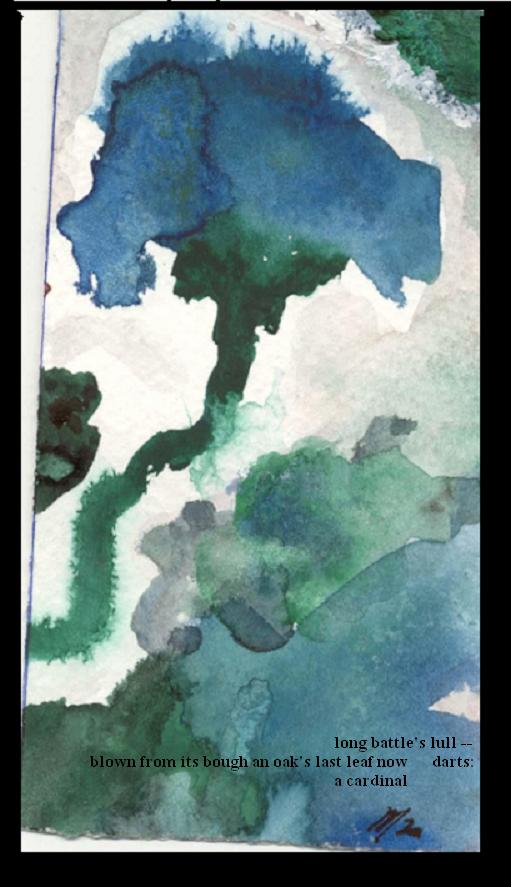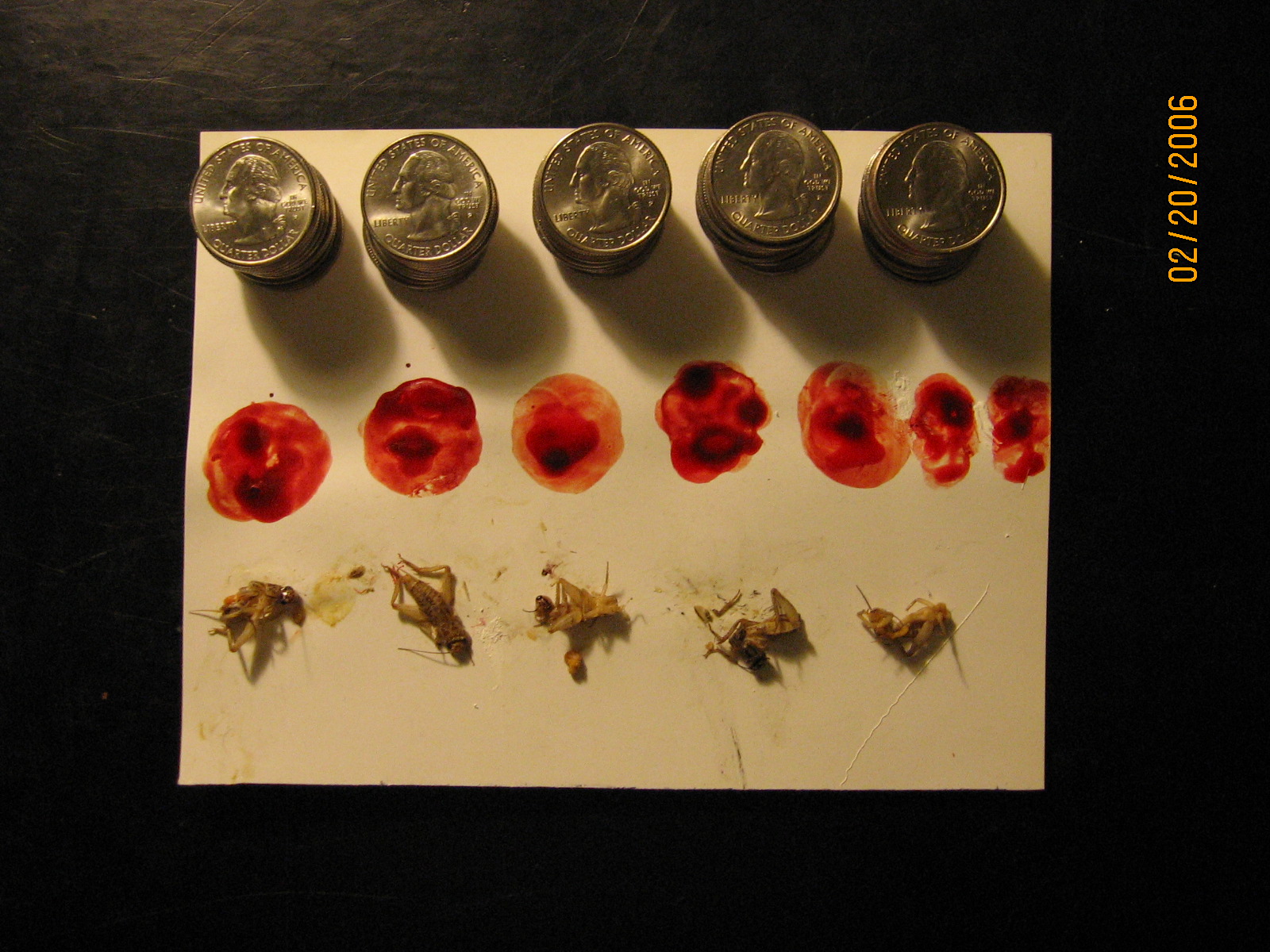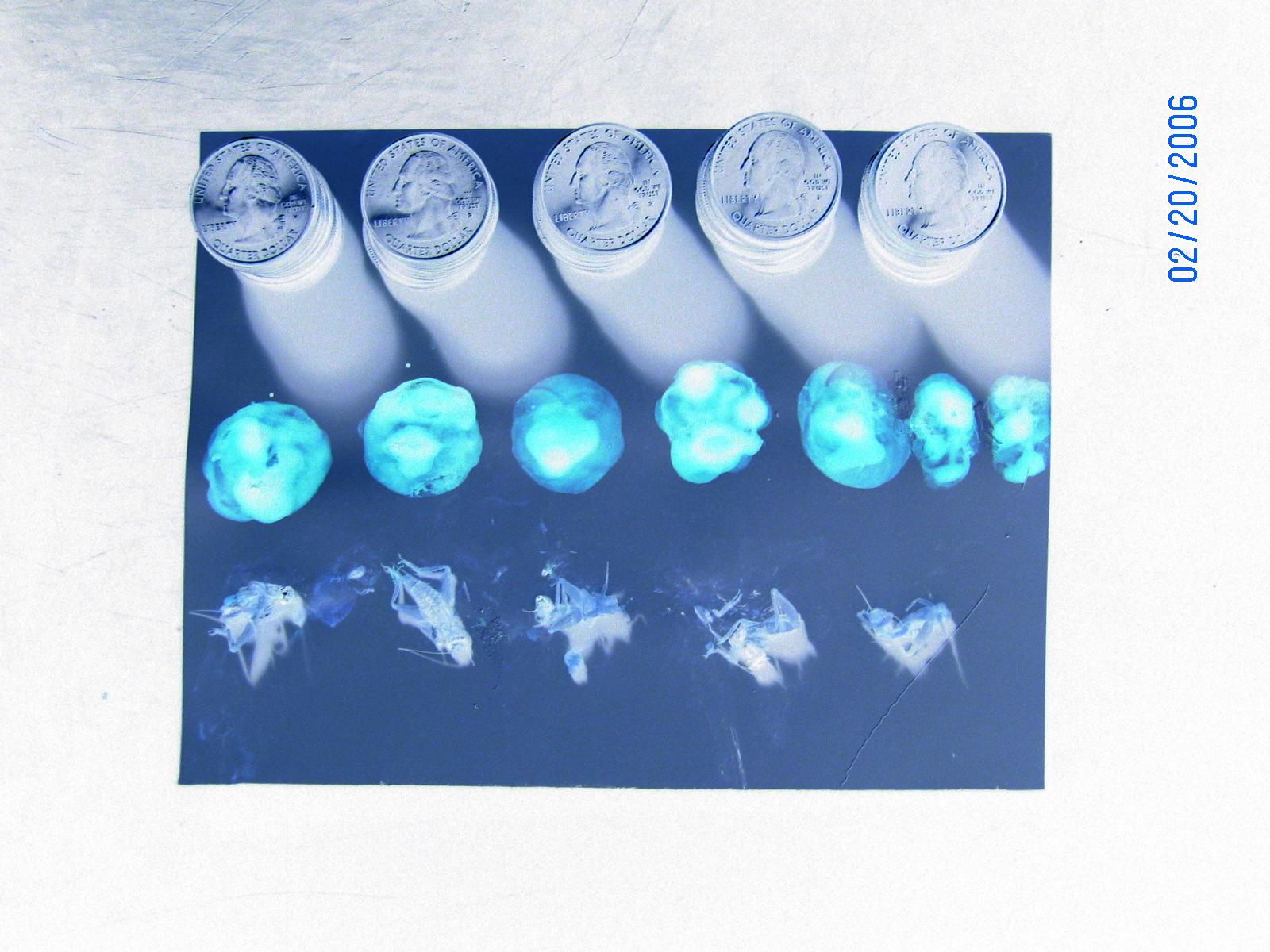 Marc di Saverio, an English major at McMaster University, hails from Hamilton, Ontario, Canada. His poetry and translations have appeared in The Dalhousie Review, Modern Haiku, Haiku Reality, Moonset, Frogpond, Maisonneuve Magazine and Haiku Scotland (he was the "featured poet" in issue 19). He is currently working on SALAMANDER-CIRRUS, his debut book of haiku, haiku translations, tanka, haiga and objectohaiku. An article regarding his work will be appearing in the forthcoming issue of Moonset.
Marc di Saverio, an English major at McMaster University, hails from Hamilton, Ontario, Canada. His poetry and translations have appeared in The Dalhousie Review, Modern Haiku, Haiku Reality, Moonset, Frogpond, Maisonneuve Magazine and Haiku Scotland (he was the "featured poet" in issue 19). He is currently working on SALAMANDER-CIRRUS, his debut book of haiku, haiku translations, tanka, haiga and objectohaiku. An article regarding his work will be appearing in the forthcoming issue of Moonset.1) Why do you write haiku?
I write haiku for the following reasons: 1) because haiku naturally occur to me (inside and outside the "now") during mindfully-experienced moments transpiring out in the world, but also during dreams, during altered states, during abstract thinking, during wild and tamed imaginings, during third-eye meditation (a.k.a. Trataka), in short, during purely inner experiences, as well. Though most of my haiku are born in actual moments of mindful experience in the real world (as most haijin's 'ku are born), I believe that by blazing new trails toward the haijin's "a-ha!" will result in both new and more ranging epiphanies, and new and more ranging forms (of haiku), both of which may result in attracting new and more ranging readership; 2) because if haiku-readership can be increased and varied this potentially powerful, misunderstood form (or should I say genre, or even way of life, or way of revolt) can be instrumental in reversing the evolutionary direction of nature-estranged, computerizing, roboticizing, fashionably passionless, kitsch-hearted, camp-hearted western humanity -- this misunderstood form can hopefully succeed in charging shriveling souls with the verve and lust to not only seek out experience and understanding and union and commonalities with the natural world, but to also inspire a strong and sincere drive to revolt against nature's destroyers, and to ACTUALLY inspire revolt 3) because I love reading and contemplating haiku...I think I have learned more from single haiku than I have from entire epics; 4) because haiku compliment my daily meditations, which compliment my haiku; 5) because i want to share the subtle links and "hidden correspondences" (as Baudelaire put it) between humankind/human nature and mother nature's kind/mother nature's nature; 6) because a haiku is, verily, "a moment's monument", and I want to create these monuments.
2) What other poetic forms do you enjoy?
Sonnets, epigrams, tanka, prose poetry, ojectoverse/objectohaiku, and verso d'oggetti
3a) my top choice would be "blue bloom haiga"

3b) my second favorite is "objectohaiku and objecto in blue", which are meant to be displayed together as one visual statement as displayed on the Haiku Reality gallery where it first appeared (crickets bought dead).


3c) For third favorite it's a tie between these two:
twilight --
as I strike my match the fireflies
scatter
(Haiku Reality, 2009, third place)
first rain --
all these finger-graven
flowers in the snow
(Haiku Scotland # 19, 2009)
If you've been enjoying this weekly series and have not contributed, please consider sharing your response (whether it be for haiku or tanka) to the three little questions that Marc answered. You must be a published poet in order to participate.
Gina will be our guest next week.

5 comments:
Thanks for sharing your thoughts with us, dear Marco.
I really enjoyed reading them and, if i dare say, I feel similar when it comes to liking haiku. Especially, I like this part of your thinking:..."can be instrumental in reversing the evolutionary direction of nature-estranged, computerizing, roboticizing, fashionably passionless, kitsch-hearted, camp-hearted western humanity -- this misunderstood form can hopefully succeed in charging shriveling souls with the verve and lust to not only seek out experience and understanding and union and commonalities with the natural world, but to also inspire a strong and sincere drive to revolt against nature's destroyers, and to ACTUALLY inspire revolt."
Good luck and all the best!
Sasa
Fantastic article!
I really like "inspire a strong and sincere drive to revolt against nature's destroyers, and to ACTUALLY inspire revolt"
I'm actually using renku as a way of revolt (thought-provoking non-aggressive revolt) later this month in Trafalgar Square (London) when I will be one of the people involved in the Fourth Plinth.
Haiku is often misunderstood and trivialized. Thank you for taking a new approach.
Your "objectohaiku and objecto in blue" (which is extraordinarily powerful) reminds me of FX TV channel series 'Dexter' (a crime-fighting sociopath who collects blood slides of his victims).
I feel your art and Dexter each address "who is the sociopath, the individual or the state" correlation.
Thank you Dunlap for bringing this poet and artist to greater attention.
Interesting to read about you and your work, Marc. Will you be coming to the Haiku North America conference in Ottawa next month?
Michael Dylan Welch
Marc this is really great! Congrats on the book! This is a wonderful article!
Ah! Found it. Great manifesto, Marc. Do the people who read this understand what it's saying, do you think? If so, do they action it? How does it relate to the current state of play in global haiku? 3 questions.
Ever your friend, John (Potts)
http://www.facebook.com/haikucrossroads
Post a Comment